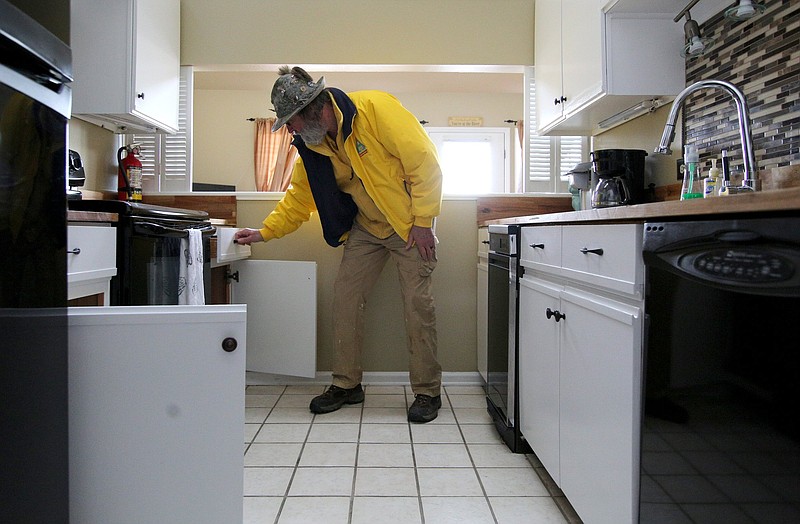Chattanooga City Council members voted Tuesday to keep applications for certain new short-term rentals closed until July, extending an existing moratorium by six months.
The pause on new short-term vacation rentals -- specifically, on those that don't have an owner living at the same address -- has been in place in the city since April.
Council members turned down a proposal to end the temporary pause on applications in February, just one month after the original sunset date, after many said that would not give the city enough time to evaluate how the city's enforcement system is working now.
(READ MORE: Chattanooga City Council may extend temporary pause on certain vacation rentals)
The temporary pause is meant to give the city time to figure out how best to enforce short-term rental regulations for properties not occupied by the owner, called "absentee" rentals.
One of the biggest issues with enforcement right now, council members said, is a lack of staff. Council members hope enforcement can improve with some new hires planned for early next year.
"I believe that fixing the enforcement is going to make a big impact on how we decide to move forward with any other regulations," said council member Jenny Hill, of North Chattanooga, at an agenda review meeting Tuesday. "Also to give us some time to get some adjustments ... to our fee structure, so that we can actually pay for this enforcement."
(READ MORE: Chattanooga aims to improve enforcement before changing vacation rental regulations)
Council members say regulation is the best way to make sure rentals aren't crowding locals out of town and gives the city the chance to make money off visitors in the form of occupancy taxes.
The city made $940,000 from occupancy taxes from short-term vacation rentals in the most recent fiscal year, up from $595,000 the year before.
Hamilton County commissioners also voted to enact a 60-day moratorium on rentals in unincorporated areas in October, which is set to expire this month. Commission Chairman Chip Baker, R-Signal Mountain, said in a text Tuesday he anticipates the county moratorium will be extended "a little," but did not offer further details.
Chattanooga hopes to increase fines for operating illegal rentals, including the roughly 450 properties the city estimates are operating without a permit, from $50 per day to $500 per day, the Chattanooga Times Free Press previously reported.
"People just pay it," council member Demetrus Coonrod, of Eastdale, said of the $50 fine at Tuesday's agenda review meeting. "But they're not correcting their behavior."
(READ MORE: Property owners await Chattanooga's decision on short-term vacation rentals)
To do that, the city needs to hire an administrative hearing officer, which should be possible by March, city adviser Chris Anderson previously told the Times Free Press. City staff are also looking to bring on three additional inspectors that can help enforce current rental rules.
Under the city's regulations, short-term rentals can only operate in certain parts of the city. When someone applies to operate one of these properties, neighbors are notified and given a chance to object to the permit or make complaints if the place becomes a nuisance.
Proposed updates to those regulations would open up the area where short-term vacation rentals can operate and instead judge new applicants' eligibility based on existing zoning.
Contact Ellen Gerst at egerst@timesfreepress.com or 423-757-6319. Follow her on Twitter @ellengerst.
